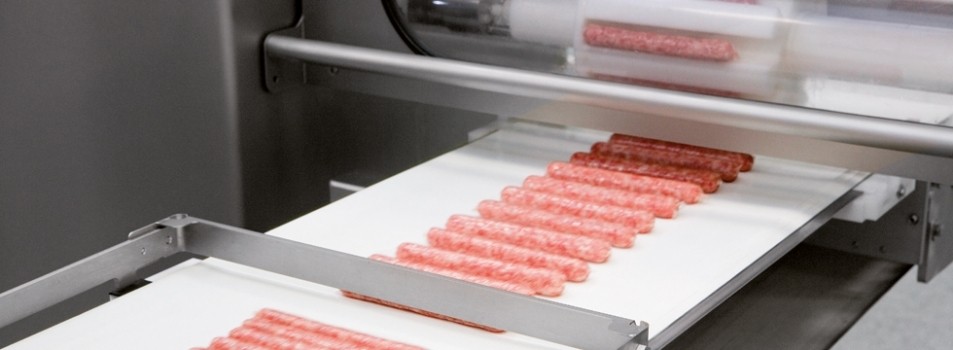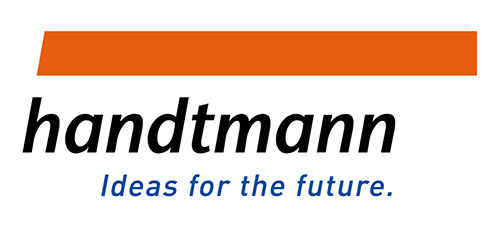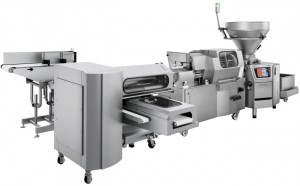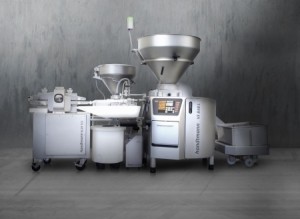Promotional Features
Keeping up to speed on plant-based foods
Plant-based eating has spawned a multitude of new product development (NPD), bringing with it a raft of ingredient, formulation and technical challenges.
Once a food and drink manufacturing company has come up with a concept, developed the idea, tested it out, refined and finally arrived at the finished product, the next stage is ramping up that product to commercial quantities, which will meet consumer demand and, hopefully, make its creator some money.
However, this stage of the process brings its own set of technological problems in terms of the manufacturing equipment to be used, along with any adaptations to suit the different nature of the product and the stringent demands of a fast-paced market. And this is often the point where the challenge arrives at the door of the food equipment manufacturer, which then needs to work with the client to extend, develop or adapt a system to suit.
Market trends
Industry and expert reports suggest the plant-based/vegan market is set to continue growing, as it has been since 2015, and consumers are choosing the lifestyle for a number of reasons – ethical, environmental and sustainable being among them. So the choice available to this expanding market is now extensive and becoming ever more so.
Flexitarians, many of whom still eat meat, but in reduced quantities than before for ‘health’ reasons, are also adding to the value of the plant-based market, as they, too, will buy and enjoy the products, thus expanding the sector further. In fact, in its Future of Food report, major retailer Sainsbury’s expects that, by 2025, a quarter of all British people will be vegetarian (up from one in eight Britons today) and half of us will identify as flexitarians (up from fifth today).
As such, equipment providers are of the opinion that the market is durable and therefore critical to their food and drink customers’ growth and investment plans – and, accordingly, their own offer.
“Wider social change and the move towards choice has led to a real development of the meat-free market, with major suppliers of meat products investing significantly in meat-free brand development and the means to manufacture,” says Paul Morican, sales team manager at equipment supplier Handtmann.
“It is clear, when looking at the level of engagement with our customers on this subject [vegan/plant-based], and the level of investment in equipment, that they too view this market as highly important. Expert reports, allied with our own data, lead us to ensure our sales and technical teams fully engage the needs of this market.
“The main challenge our customers face is that servicing these new dietary requirements almost always means investment in new equipment. There is also a significant challenge with product development and that is not only to create a product recipe that the customer will enjoy, but also marry that with the requirements of the equipment that manufactures the product.”
Moreover, for the vegan market in particular, the equipment concerned should not have any history at all of use with meat. “Therefore, movement into these market sectors generally requires new and dedicated equipment,” he says.
As the plant-based market grows and diversifies, the widening selection of product types can range from burgers to sausages and balls, for example, requiring different formulation methods. Handtmann, which has many customers in the traditional meat-based sector, says the “highly visible trend in sausage, ball or burger production is now the meat-free or plant-based product aimed at flexitarians”.
The case for casings
One of the technical challenges encountered in producing a meat-free sausage, however, has been the casing.
In the meat-based sausage category, the advantages of different casing choices – whether natural collagen or synthetic – has been widely debated for a number of years. Now, the rapid development of the meat-free sector meant equipment firms were being asked to apply the same principles achieved in the meat-based market – high speed, clean cut and linking, as well as automatic collation and feeding – to meat-free brands.
In the case of Handtmann, Morican says the company had already developed equipment to apply an alginate (vegetable gel-based) coating to various products and was therefore able to easily transition its use for the meat-free sausage sector. “Alginate casing is a purely vegetable-based gel,” he says. “When applied at speed this gel covers the sausage in a transparent skin/case that allows the product to remain visible and is very similar in this respect to natural or collagen casing. On cooking this gel then recreates to a large extent the ‘bite’ that we all expect of a sausage.”
The development has brought some potentially unexpected benefits to both the meat-free and meat-based sectors, including efficiency, speed and, therefore, cost-saving. “Casings are playing a major part in sausage manufacturers’ strategic decision-making on both margin and product development,” explains Morican. “Initially due to the move into the meat-free/plant-based sector and, latterly because of the possibility of cost savings, suppliers are paying close attention to developments in casing options.”
With margins the main challenge to manufacturers in the core meat-based markets – coupled, in the case of sausages, with a prevailing price for pork of late – the search for margins is driving casing choice, he says. “And experience gained in the newly developed meat-free/plant-based market is now being pointed at traditional meat products, specifically with alginate and synthetic casing, which provides some capacity for savings.
“Clearly, most meat-based products will remain in natural and traditional casings, but as alternatives develop – and without affecting the customer’s taste experience – casings will be an area of focus.”
Automation benefit
However, one of the key areas of saving with alginate casings is the speed at which they can be handled on increasingly automated manufacturing lines.
As Morican notes, manufacturers of meat-based products have been ramping up automation of late in a bid to achieve operational efficiency. “Where, traditionally, products have been hand-sorted and packed by hand, our customers are now automating (and speeding up) their operations.”
Specifically, he says, this could be automatic collation (grouping) of sausages and placement into automatically fed trays using Handtmann’s GS300 automatic collation system. Major developments in automatic collation in recent years “save time, labour and, therefore, cost”.
And this is where alginate gel also comes into its own. “In production, this gel cures very quickly and enables automatic handling,” says Morican. “There is real potential to have lower casing costs. The main saving is on continuous production because, with natural casing specifically, each case needs to be loaded by hand during a machine stop, but with alginate gel, the line can run continuously.
“Without doubt the biggest development in equipment is the alginate cased meat-free sausage, made at the same speed as a conventional sausage,” he says. “It may not sound too exciting, but putting a precise coat of gel around a sausage at high production speeds of in excess of 1500 per minute and in a way that makes the sausage easy to handle and pack is impressive.
“Handtmann now supplies equipment to make meat-free sausages without any limitations when compared to meat-based. Uniquely we can now produce linked sausages in alginate casing.”
Handtmann’s CONPRO range of co-extrusion equipment produces alginate sausage continuously and they can be cut or linked to suit the clients needs.
With consumers in the driving seat, NPD is not slowing down – be it in the new sausage flavours that continue to appear on the market, burgers that look artisan and handmade, multi-formed products with more than one ingredient to add taste and value, or meat-free/plant-based products that offer consumers a different dietary option.
“Innovation occurs daily in the provision of consumer choice on an unprecedented level,” adds Morican. “The emergence of a societal need for choice and with an ever-expanding prevalence of lifestyles, the growth of the plant-based and meat-free product has challenged our core customers with new market development and then significant investment in new equipment. Manufacturers are investing in themselves widely and, importantly, with a clear eye on the most efficient methods of production.”
Continued market growth will lead to more choice and more product development by food manufacturers in the meat-free market. “While most of our equipment range is fully transferable to these applications, we are developing and will continue to develop equipment that supports this,” he concludes.
For more information on Handtmann’s products and expertise in the meat-based and plant-based manufacturing equipment sector, please click here.
Handtmann has also produced a series of white papers on vegan products. For details, please click here .
For a video showing Handtmann equipment at work, see below:



